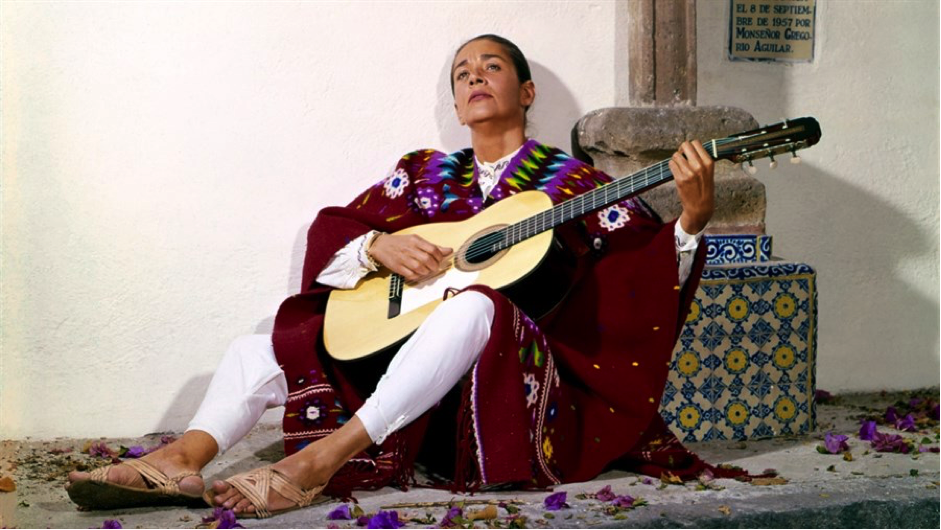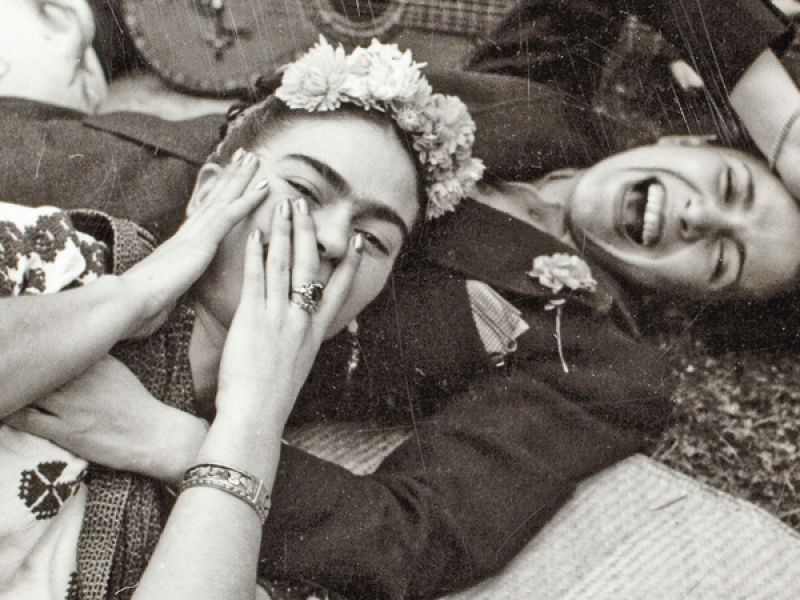
Singer and queer icon, Chavela Vargas and her unique perspective on the world is remembered and celebrated in this thoughtful documentary.
The film centres around video footage that director, Catherine Gund filmed back in 1992 during a short stay in Mexico. Unearthed after Vargas’ death in 2012, Gund found that the tapes contained such intimate and raw accounts from the singer that she quickly teamed up with her friend Daresha Kyi to dig deeper into the legend. The result is a lyrical film so evidently crafted with love that it’s impossible not to fall hard for Chavela and its subject.
Most people will recognise or know of Chavela Vargas through Frida Kahlo and the now infamous photograph of the past lovers laughing hysterically in a garden. The ranchera singer had worldwide success but is most cherished in Spain and Latin America – especially in Mexico. Known for her androgynous appearance, flamboyant poncho and pants – which were a scandal for a woman to be wearing before the 50s – she became an icon among Mexican lesbians, the wider LGBT+ community and all women whom she dedicated her music to.
The latest documentary about the ranchera singer delves into the mysticism that revolved around her, tracking her life from her birthplace of Costa Rica to her chosen motherland, Mexico, and later to Europe, capturing the pains and pleasures she went through in her very turbulent life.
The documentary begins with footage of Vargas telling the interviewee, “at my age, it’s more interesting for everyone to ask where I’m going, not where I’ve been. It will make your documentary more impactful”. Contradictory to this, the film does follow a life to death narrative, but what this moment ultimately shows is Varda’s conviction in being the creator of her own legend. Herstory is one of resilience.
Unlike typical biopics about passed musicians where there is a pattern of using the artist’s music as a way to underscore or foreshadow their death, Vargas’ songs- which happen to be largely about hardship- are still allowed to be interpreted with her talent, and are given enough screen time with interludes of past performances throughout the film.
Vargas experienced plenty of adversity and the film doesn’t shy away from exploring her abandonment by her parents as a child and her being treated as inferior for not conforming to gender. It also looks at her long battle with addiction, and her many heartbreaks. The reclamation of her pain, anger, and choice to to be unapologetic is inspiring to witness, especially in her performances. Long interludes of her performances such as ‘Soledad’ are at times overwhelming in their sincerity, while her relaying of the lyrics “touch me Macorina” in the song ‘Macorina’, still feels refreshing and empowering now.
What also stands out from the film, which perhaps shouldn’t, is that the majority of those interviewed about the singer are women. For a genre such as ranchera, which was very male-dominated at the time, it is special to have Vargas’ peers, young and old, such as Eugenia León and Tania Libertad, talking about the platform she set for them. The directors’ thorough research and carefully considered interviewees really pays off in this area and results in a film that also explores the importance of the company Vargas had around her.
A particularly touching part of the film shows Vargas’ long collaboration and friendship with Pedro Almodovar, who recounts calling everyone he knew to make sure her first big shows in Madrid sold out. Another comes from two bar owners who told a newly sober Vargas they would rather cancel her comeback show than risk her drinking again. The film is also subtly one of community and its importance to neglected individuals like Vargas, and its honest portrayal on screen is admirable.
Although at times conventional in the way it tells Vargas’ story, the film is an important exploration of a ground-breaking artist with a lot of charm. Chavela was recently shown at Sheffield Doc/Fest, is currently touring festivals internationally, and will hopefully become available soon for those that are looking for a good cry, a little wisdom, or a new icon. A trailer of the film can be found here.










